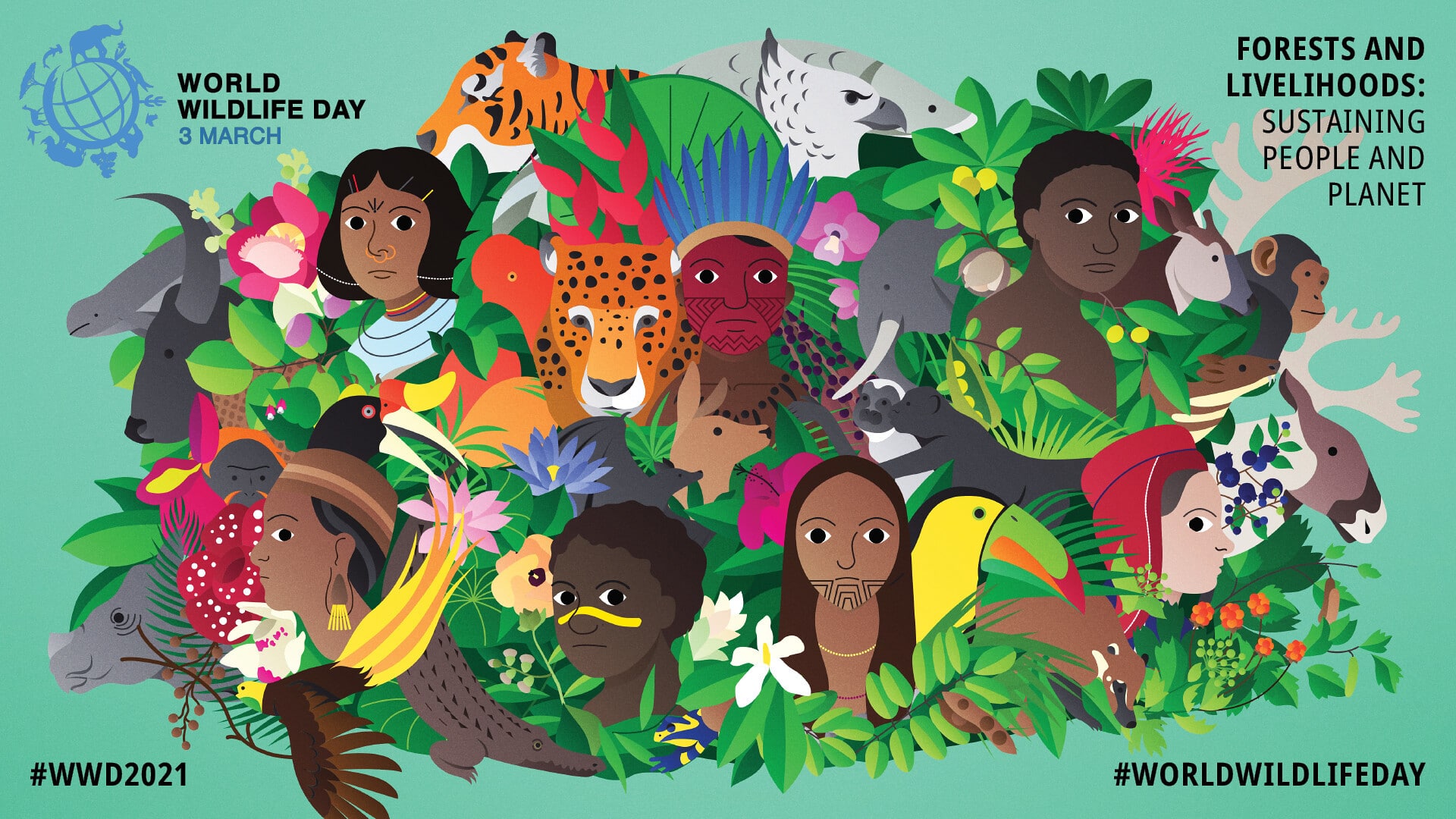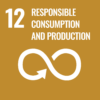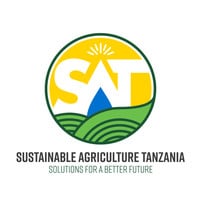Raising awareness to protect forests and livelihoods.
On March 3rd 1973, the Convention on International Trade in Endangered Species of Wild Fauna and Flora (CITES) was drafted and signed with the objective to conserve wildlife and prevent international trade from pushing species into extinction. Since 2013, the date has designated as World Wildlife Day, representing one of the most important global events dedicated to the conservation and safeguarding of wildlife.
Today World Wildlife Day is celebrated with the theme “Forests and Livelihoods: Sustaining People and Planet“, as a way to highlight the central role of forests, the species that live in them, and ecosystems that sustain the livelihoods of hundreds of millions of people globally, particularly of indigenous and local communities with historic ties to forested and forest-adjacent areas. This aligns with UN Sustainable Development Goals 1, 6, 12, 13 and 15, and their varied commitments to alleviating poverty, ensuring sustainable use of resources, and on conserving life land.
PROTECTING FORESTS
APOPO directly participates in the global efforts to preserve indiginous forests in Tanzania. The forests of the Uluguru Mountains are of critical importance to local village communities, large neighboring cities of Morogoro and Dar es Salaam, and the survival of endemic plants, birds and animals found nowhere else in the world. APOPO partnered with Sustainable Agriculture Tanzania (SAT) to begin a tree planting project four years ago that will offset APOPO’s C02 emissions caused mainly by transport. Planting 50,000 trees over a ten-year period means that once they have reached maturity each of those trees can sequester 50,000 tons of carbon dioxide per year. Carbon offsets are a practical and effective way to address climate change and encourage the growth of renewable energy. Something that APOPO is passionate about.
CHALLENGE
The local farming community in Tanzania faces many challenges such as lack of knowledge on production, lack of capital, inappropriate farm management, harsh weather conditions and limited access to markets. Using traditional slash-and-burn methods for agriculture has placed a huge demand on the Uluguru mountain’s indigenous forests which have been shrinking exponentially with over 50 villages living right under the forest line.
HOW WE HELP
Sequestering carbon by planting trees uses photosynthesis to remove carbon from the atmosphere as the trees absorb and store carbon in their stems and roots, and release oxygen back into the atmosphere. A mature tree can absorb 22kgs (48 lbs) of carbon in just one year. But first tree seedlings need at least 10 years to grow and reach maturity. To ensure that new trees that are planted are not cut down, SAT trains small-holder farmers, teaching them new sustainable methods to revitalize their land — planting trees alongside their crops and smart organic agriculture skills that produce natural fertilizers — leading to higher crop yields, increased income and food security, resilience to a changing climate and sharing their experiences with their communities. Soils eroded by water run-off transfer excess sediment to streams and pollute the water supply for Morogoro town. These new trees will intercept and filter rainwater, slowing its movement and preventing it from eroding soils which allows for better recharging of groundwater.
LONG-TERM IMPACT
APOPO is investing in local smallholder farmers and training them not only in tree planting and maintenance but also sustainable agriculture that creates economic opportunities, boosting local economies while empowering individuals. These farmers are receiving training over a five-year period. We anticipate that a total of at least 21,000 trees will be planted during an initial five year period with plans to reach 50,000 at the end of 10 years. The project will help reduce poverty, focusing on activities that promote more sustainable farming practices for the mountain village communities that are farming in or around forests and protected areas. Aside from improving the farming of usual crops, this project leads these farmers to plant high-value crops, and hopes that with this livelihood approach, these communities will practice sustainable and environmentally conscious agriculture that puts less strain on forests and other natural resources, so they can function to help slow down climate change.
HOW YOU CAN TAKE ACTION:
- Support the HeroTREEs project by donating to APOPO in honor of #WWD2021 on GlobalGiving
- Follow us on social media to get news on our projects
- Get to know the animal and plant species under threat where you live, in your area or country, and find out more on the threats and challenges they and their habitats face, and what can be done to conserve them. Share this knowledge with your family and friends.
- Take personal action with Good Life Goals
APOPO is grateful to the partners who are enabling the success of our carbon offsetting project.








